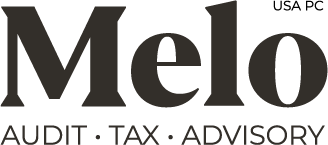As a result of the COVID-19 pandemic, many commercial real estate owners are unable to make their mortgage payments. While the CARES Act and the CAA targeted helping small businesses remain operational, they included no direct help for commercial property owners. The acts only provided indirect help in the form of forgiving loan proceeds used to pay specific expenses such as mortgage interest and lease and rent payments.
This was helpful to commercial property owners only as long as tenants continued to pay them. It did not help in other situations.
This leaves landlords in a precarious position. Owners do not know when or if tenants will be able to pay or whether businesses will reopen.
But waiting for the situation to play out is not the best course of action. Instead, landlords need to be proactive and strategize regarding how they will approach their lenders if they are unable to make their mortgage payments.
Seven important actions
Here are seven actions landlords can take that may give them an advantage in negotiating the best possible outcome:
- Understand who at your organization has decision-making and signatory authority.
- Review your loan documents and make note of the following:
- Due dates.
- Grace periods.
- Cure periods.
- Default provisions.
- Late payment fees.
- Nonrecourse carveout provisions.
- Identify who is entitled to notice (e.g., tenants, insurers).
- Determine the extent to which you must work with the lender
- To perfect or enforce the loan.
- Before you can enter a lease amendment or amend a property management agreement.
- Review all tenants’ leases in regard to their respective rights and remedies, including the following:
- Rent reduction.
- Rent deferral.
- Rent abatement.
- Loan conversion.
- Application of security.
- Subletting.
- Know who is paying taxes on your property. Are they paid directly, or does the lender pay them out of an escrow account?
- Recordkeeping
- Memorialize all communications sent to or received from lenders, tenants, property managers, government agencies and any interested third parties.
- Keep a record of all full and partial payments and the dates they were made.
- Document all relevant phone conversations.
- Ensure that all financial records are up to date, including profit-and-loss statements and tax records.
Communication is key
Communicating with all parties is key. Once all relevant documents and records have been evaluated and important provisions noted, the property owner should delegate someone to be in charge of communicating with the lender and any other relevant parties. That person should have a process to ensure all stakeholders are in the loop.
Every situation is unique and may have hidden complications, such as tax consequences. Be sure to get professional advice from Melo USA PC before taking any steps that may result in a negative outcome.
Read More
